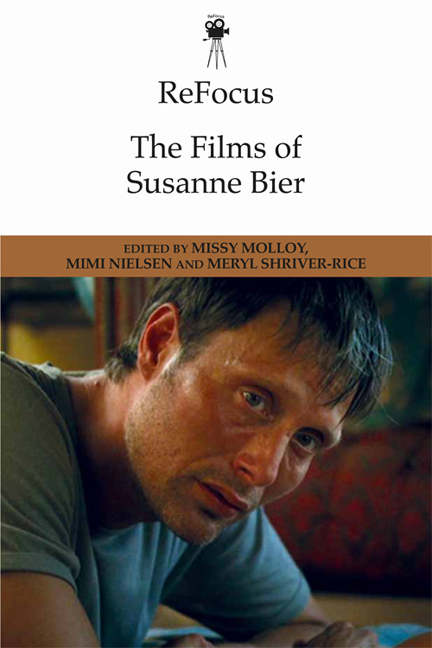Book contents
- Frontmatter
- Contents
- List of Figures
- Notes on Contributors
- Foreword
- Introduction: Susanne Bier's Boundary-Crossing Screen Authorship
- Part 1 Generic and Industrial Fluidity
- Part 2 Negotiating Identity
- Part 3 Authorship and Aesthetics
- Part 4 Transnational Reach
- Postscript: A Conversation with Susanne Bier
- Filmography of Susanne Bier
- Acknowledgments
- Index
11 - Cinema of the World and Women's Film Culture: Susanne Bier's Transnational Cinema
Published online by Cambridge University Press: 01 May 2021
- Frontmatter
- Contents
- List of Figures
- Notes on Contributors
- Foreword
- Introduction: Susanne Bier's Boundary-Crossing Screen Authorship
- Part 1 Generic and Industrial Fluidity
- Part 2 Negotiating Identity
- Part 3 Authorship and Aesthetics
- Part 4 Transnational Reach
- Postscript: A Conversation with Susanne Bier
- Filmography of Susanne Bier
- Acknowledgments
- Index
Summary
In recent years the popular press has drawn attention to gender disparity in the film industry. With a focus on establishing which women are the exceptions at male-dominated awards ceremonies or how few achieve director credits on top grossing films, this attention has, paradoxically, resulted in more and more women directors gaining visibility. Susanne Bier has directed fifteen feature films and one miniseries—her success has been considerable against any measure, but especially so in light of the statistics regarding female directors. Bier's profile, however, has been slow to come to prominence in both the public sphere and film studies circles, including feminist film studies. This may be because her body of work is thematically diverse, does not cohere around a particular approach to questions of gender, and, from a production perspective, traverses nations and continents. Rather than perceiving these issues as an impediment to analysis, I am interested in how the intricacies and perceived incongruities of Bier's profile and film work might be seen through a feminist optic and scholarly approaches to the female director.
Bier's film work makes a rich contribution to the interrelated movements of New Danish Cinema, the transnational Nordic film industry, and the avant-garde film phenomena Dogme 95. Accounting for Bier's films on these terms and within these contexts allows for fruitful analysis, in particular for national cinema scholarship. National and regional contexts cannot, however, tell the whole story of the female director. An accurate mapping of women and film culture can only be achieved by looking beyond local considerations to identify cultural and industrial links with other female practitioners in ways that not only acknowledge the increasingly international tenor of film production, but also account for broader histories of women's filmmaking and the systemic changes that shape women's careers at a global level.
In her book Women's Cinema, World Cinema: Projecting Contemporary Feminisms, Patricia White explores how films circulate given a range of factors including the value bestowed on men's versus women's genres, the formulation of the director's public persona, and the uneven international commercial terrain that distinguishes the influence of different cinemas. White argues that in the age of global mass media, “women have a crucial role as producers of [a] public social vision, not only as media consumers and representational supports” (White 2015: 3).
- Type
- Chapter
- Information
- ReFocus: The Films of Susanne Bier , pp. 211 - 228Publisher: Edinburgh University PressPrint publication year: 2018



